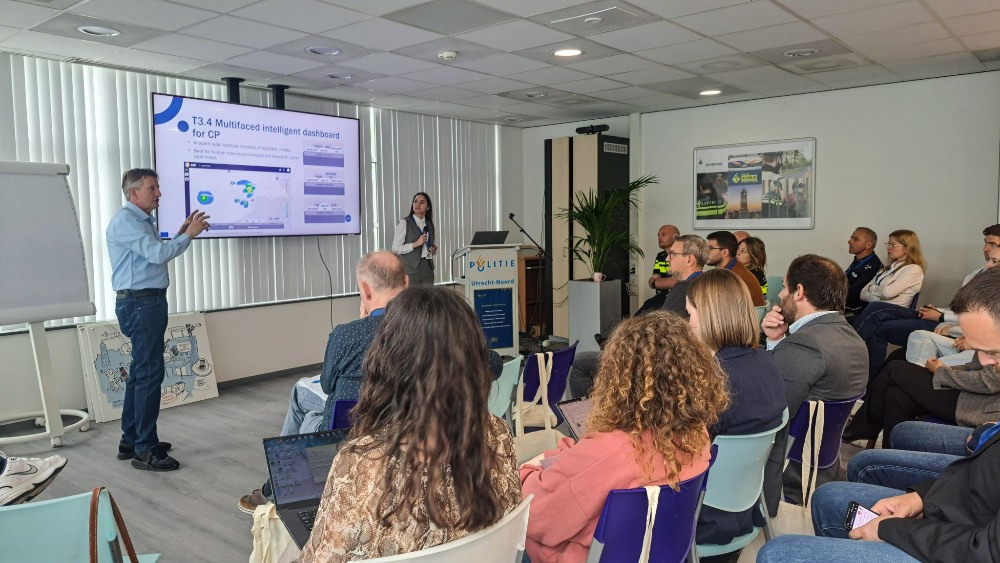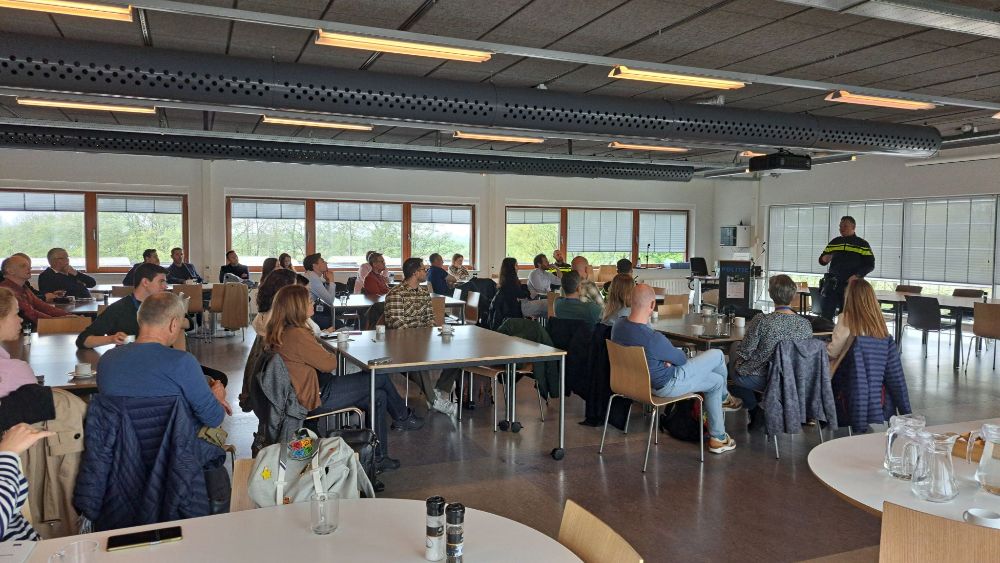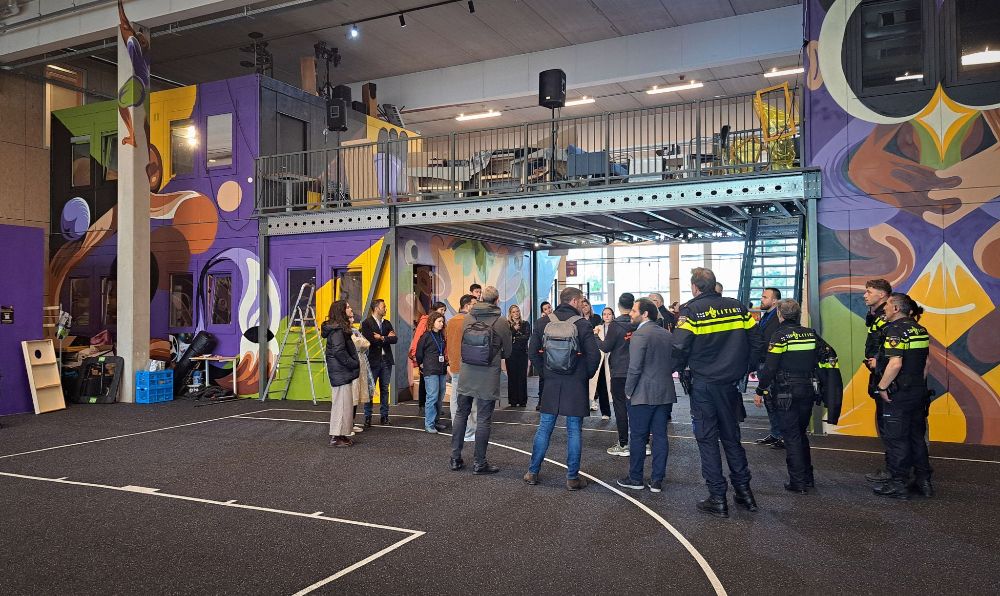IPS_Innovative Prison Systems joined 17 international partners, including the Brussels Police, at the National Police Headquarters of the Netherlands as part of the IPS-partnered initiative KOBAN. The event marked a significant step in reinforcing cross-border collaboration on Community Policing and Rehabilitative Justice across Europe.
Modern public safety depends not only on law enforcement’s presence but also on its partnership with the communities it serves. Community policing moves beyond reacting to crime by focusing on building trust, working collaboratively with community members and preventing issues before they escalate. This integrated approach allows for solutions that are tailored to each community’s unique context, empowering residents and reinforcing a shared responsibility for safety.
In alignment with these principles, the IPS-partnered initiative KOBAN is working to advance community policing by developing innovative, research-based models that respond to the evolving needs of law enforcement agencies (LEAs) and the communities they serve.
On April 23rd and 24th, 2025, the initiative held a General Assembly at the National Police Headquarters of the Netherlands, bringing together partners from the criminal justice system, civil society, technology providers and law enforcement – including the Brussels Police – to reflect on the project’s progress and to plan future strategies for building safer, more inclusive communities.
A central theme of the event was the importance of people-centered safety frameworks, which prioritise the needs, rights, and experiences of individuals within communities. Participants discussed how this approach not only helps to build public trust but also creates the conditions for more effective and lasting reintegration of individuals who have come into contact with the justice system. The conversations highlighted the value of stronger cooperation between police forces, justice institutions, technology providers and community organisations, noting that coordinated efforts are essential for supporting rehabilitation and fostering a sense of shared responsibility for public safety.
The assembly featured a presentation by Chief of Police Yvonne Hondema, who discussed the evolving role of police services, and emphasise the critical importance of community engagement in building and maintaining public trust.
Participants also had the opportunity to engage in field visits, providing a firsthand look at community policing practices in action. At the Zaandijk Zaans Police Department, officers offered valuable insights into practical strategies for fostering strong community ties, highlighting how regular engagement with local residents helps to build trust and address specific community concerns.
Additionally, a visit to Utrecht’s AI-powered police station allowed participants to explore the integration of cutting-edge technologies into everyday policing operations, showcasing how technology can complement traditional policing methods and offer new opportunities for enhancing both public safety and operational effectiveness.
Furthermore, attendees toured two Central Agency for the Reception of Asylum Seekers (COA) centers, gaining valuable insights into the collaborative efforts between COA staff and local police. These visits highlighted how both organisations collaborate closely to ensure the safety, security, and well-being of refugee populations, addressing unique challenges through coordinated support services and community-focused initiatives.
Holistic Radicalisation Prevention Initiative



To conclude, the assembly also served as a platform for partners to share updates on KOBAN’s ongoing initiatives. These include efforts to strengthen interagency collaboration and promote inclusive crime prevention across all levels – primary, secondary, and tertiary. By fostering dialogue, sharing practical experiences, and exploring innovative solutions, the KOBAN initiative continues to promote a holistic model of policing and justice that places reintegration at its core.
Holistic Radicalisation Prevention Initiative
Know more about this project

KOBAN
Identifying future capabilities for Community Policing
KOBAN is led by the National Police of the Netherlands.
The remaining consortium members of the KOBAN project are IPS_Innovative Prison Systems (Portugal), the Polish Platform for Homeland Security – PPHS (Poland), the Sheffield Hallam University – CENTRIC (UK) Netherlands Organisation for Applied Scientific Research – TNO (The Netherlands), SAHER Europe (Estonia), VicomTech (Spain), TIMELEX (Belgium), the Finnish Police – FIMOI (Finland), Valencia Local Police – PLV (Spain), Home Office of the United Kingdom (UK), Erasmus University (The Netherlands), the European Forum for Urban Security (EFUS), City Brussels Police (Belgium), Ianus Consulting Ltd (Cyprus), the Centre for Research & Technology Hellas – CERTH (Greece), Polish Police Regional HQ in Radom – KWPR (Poland), Lisbon Municipal Police (Portugal) and the Czech Police (Czechia).
For more information on the project, or to learn how to get involved, please visit its website.
Related projects

WAYOUT
Integrated Exit Programme for Prisons and Probation

VicTory
Restorative and victim-centred approach to mitigate hate and (violent) extremism

SHIELDed
Safeguarding symbolic places of personal and religious development and freedom in Europe through a multi-stakeholder approach.

SafeBorders
Strengthening Judicial expertise and Frontline support to combat Child Trafficking

REFUGIN
Communitarian approach for a holistic young refugee long-term integration

R4JUST
Radicalisation Prevention Competences’ Development Programme for Justice Professionals

R2PRIS
Radicalisation Prevention in Prisons

R2COM
Radicalisation and violent extremism prevention in the community

PRACTICIES
Partnership against Radicalisation in Cities

PARTES
Participatory Approaches to Protecting Places of Worship

MIRAD
Multi-Ideological Radicalisation Assessment towards Disengagement

KOBAN
Identifying future capabilities for Community Policing
Related news

JUSTICE TRENDS Magazine Launches 14th Edition: Expanding the Frontiers of Rehabilitation Support
Read More »
IPS’ CEO joins leading experts at event organised by INTERPOL to discuss the future of offender management
Read More »






